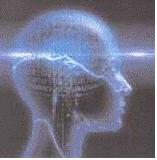|
Call for Participation
We invite submission of workshop papers that discuss
ongoing or completed work dealing with Inductive
Transfer (see below for a list of
appropriate topics). Papers should be no more
than four pages in the standard NIPS format
(style files and examples). Authorship should not be blind.
Please submit a paper by emailing it in Postscript
or PDF format to
danny.silver@acadiau.ca
with the subject line "ITWS Submission". We
anticipate accepting as many as 8 papers for 15 minute
presentation slots and up to 20 poster papers. Please only
submit an article if at least one of the authors
will be able to attend the workshop and present the
work.
The 1995 workshop
identified the most important areas for future
research to be:
-
The relationship
between computational learning theory and
selective inductive bias;
-
The tradeoffs
between storing or transferring knowledge in
representational and functional form;
-
Methods of turning
concurrent parallel learning into sequential
lifelong learning methods;
-
Measuring
relatedness between learning tasks for the
purposed of knowledge transfer;
-
Long-term memory
methods and cumulative learning; and
-
The practical
applications of inductive transfer and lifelong
learning systems.
The workshop is interested in the progress that has
been made in these areas over the last ten years.
These remain
key topics for discussion at the proposed workshop. More forward looking and important questions include:
-
Under what conditions is inductive transfer
difficult? When is it easy?
-
What are the fundamental requirements for
continual learning and transfer?
-
What new mathematical models/frameworks capture/demonstrate
transfer learning?
-
What are some of latest and most advanced demonstrations of
transfer learning in machines (Bayes, kernel
methods, reinforcement)?
-
What can be learned from transfer learning in
humans and animals?
-
What are the latest
psychological/neurological/computational
theories of knowledge transfer in learning?
Research in inductive transfer has continued since
1995 under a variety of names: learning to learn,
life-long learning, knowledge transfer, transfer
learning, multitask learning, knowledge
consolidation, context-sensitive learning,
knowledge-based inductive bias, meta-learning,
continual learning and incremental/cumulative learning. Papers in any
of the above areas are welcome. The reviewers
will give the highest merit to new theories,
approaches and algorithms
regarding the accumulation and use of learned
knowledge for the purposes of more effective and
efficient learning.
From a research community and program perspective
there are important questions that should be
addressed such as:
|

